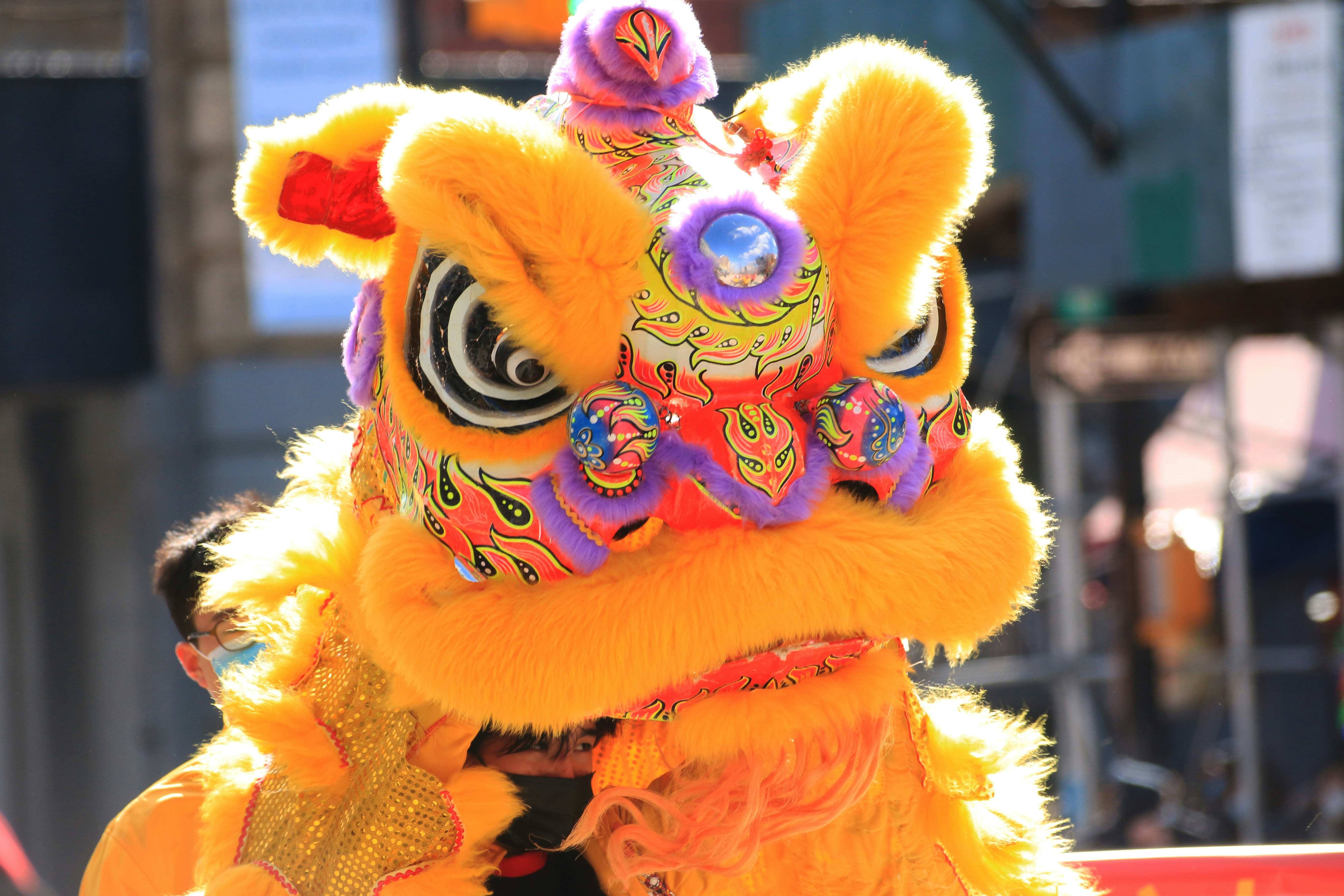A is an Hungarian reporter visiting Taiwan, with his cultural investigation team hitch-hiking and sleeping with locals in different countries.
A是一位訪台的匈牙利記者,他與他的團隊在不同國家以搭便車和借宿的方式進行文化訪查。We had this conversation in English and I translated a part of it into Chinese.
對談是以英文,我再翻成中文以對照閱讀。
A:
We were in a really small town (in Turkey). like we just got to this town and everybody was so… so poor. There was a really nice lady and a really nice man. They were like farmers and they they said yes to let us sleep over.
I had like one minute rest and I just saw that all of the people from the town going in this house to bring something.
(在土耳其)我們到了一個非常小的村落。村落裡的每個人都...非常窮。讓我們借宿的人家是一對非常好的夫婦,我記得他們是農夫。
我只休息了一分鐘,然後我就看到全村的人開始帶一些東西進來這間屋子。
Me:
Wow.
哇。
A:
If a family has some olives, they bring the olives. Another has bread so they brought it, and another brought some wine.
他們有什麼帶什麼,如果他們有橄欖,就帶橄欖,如果有麵包就帶麵包、如果有酒就帶酒。
Me:
Wow.
哇。
A:
Everybody just bring what they had and made a dinner for the us.
村落裡的所有人就這樣每家帶僅有的一小樣東西來這家,為我們湊成了一份晚餐。
Me:
Just the kindness (in awe).
(感敬)真的是非常大方。
A:
They didn't have much, but still it was like everybody has just a little thing but they just want to give them. So heartwarming.
他們幾乎什麼都沒有,但他們就是想給予那僅有的一些東西。真的很暖心。
Me:
Yeah. Wow. Eye opening. Must have been some special experience for you.
真的,哇。打開眼界了。一定是一個難忘的經驗。
A:
Yeah. It was in Turkey. But a lot of great things happened in every country. Every country is really, really different. All the cultures. All the religions.
沒錯。那是在土耳其時。但在每個國家都發生過一些特別的事情。每個國家都非常不一樣。不一樣的文化、不一樣的信仰。
Me:
So, for now, what impresses you the most in Taiwan?
那至今為止台灣給你的印象如何?
A:
I just thought that this will be a hard country for the team, because the life is pretty good here.
我當初就認為這應該會是對團隊很不利的國家。因為這裡的生活條件很好。
Me:
I guess it is.
沒錯。
A:
There are a lot of like nice cars and good apartments and things like that. And our experience is that if there are more rich people, it's always harder to hitch-hike and find free stay with locals.
這裡有很多人開好車、住好房。而我們的經驗是,如果人們比較富有,會比較難搭到便車也比較難找到借宿。
Me:
It's so … it's it's so wrong, right?
…這件事不是很弔詭嗎?
A:
Yeah imagine in the Philippines. Everybody was fucking poor. Yeah, people and kids were sleeping on the floor in the streets, but like every time when we hitch-hike the chance was three out of four cars would give them a ride without difficulty.
對啊,想像在菲律賓時,每個人都窮得要死。人們、小孩就這樣睡在路上。但每次搭便車時至少有3/4機率可以攔到車。
It's always different. Turkey was the same like Taiwan. So many people are richer than the average or just the average and it was so hard to hitch-hike and find free local stays there.
但像在土耳其就不一樣,土耳其跟台灣一樣。許多人都比一般人富有,或是至少過著平均水平的生活,但卻非常難攔到便車,也很難找到借宿。
But here in Taiwan the culture is really nice. I really like that religion is really important part of the culture. Here’s a lot of great huge buildings and really nice places. So I really like this country.
但在台灣我真的覺得文化很棒。我喜歡台灣把信仰當作生活中很重要的一部分。這裡有很多高大的建築和很多很美的地方。我確實很喜歡台灣。
But it's every time … every time the experience is different in a different country.
不過確實也是每次都不一樣...每次不同國家的體驗都很不一樣。
Me:
It’s your first time in Taiwan?
這是你第一次來台灣嗎?
A:
Yeah. Yeah.
對。
Me:
Thank you for liking it then.
感謝你喜歡。
A:
(Laughs) You don't have to say thank you.
(笑)不用謝啦。
Me:
As a person born here I appreciate the appreciation, I think.
我只是覺得身為出身在台灣的人,我感謝你喜歡這裡。
A:
How do you like to live here? Do you have any impressions to live abroad or something like that?
那你喜歡住在這裡嗎?或者你比較想要住在國外?
Me:
Uh, I stayed in Australia for three years. I stayed in other countries. Um, I didn't like living in Taiwan. But coming back from Australia, I feel like a foreigner again. (A laughes) Yeah, so that
means I can see things with new perspectives now.
我在澳洲住了三年,也待待過其他國家。我確實也不喜歡住在台灣。但是從澳洲回來後,我總覺得像是個外國人。(他笑了)我總覺得我開始用新的角度看台灣了。
A:
Yeah, absolutely.
嗯,我懂。
Me:
I started to think Taiwan is a new country. And I'm traveling in different cities in Taiwan just to live shortly in different counties and cities to experience ‘em. But I don't like a lot of things still. Like the weather. (A laughes in agreement)
我開始覺得台灣是個全新的體驗。我現在就正在台灣不同的城市間旅行,短暫待在不同城市去體驗它們。不過老實說我還是有很多地方不喜歡台灣,譬如說天氣。(A理解地笑)
But mostly, how do I put it … it's not cultural … it's kind of like the cultural impression. Like, oriental. It’s the eastern character. I think they are more reserved. Like, they're a little bit more close-minded like compared to open-minded. Conservative. Traditional.
但最主要的是...要怎麼說...也不是文化,而像是文化給我的感覺。應該可以說是...這裡的東方性格吧。我覺得這裡更保守。我覺得這裡的態度更封閉些、思想更僵化點、傳統派。
They like systems, principles, rules and efficiency. So, not a lot of space for creative people like me. That's why a lot of us (the creatives) are struggling in Taiwan. This is the biggest reason I don't like living in Taiwan.
他們喜歡系統、準則、規矩和效率。所以對我這種創意人來講不是很舒適。這也是為什麼我們(這些創意者)在台灣很難存活。這是我不喜歡台灣的最大原因。
A:
Um, it's a little bit like Hungary really. We have a government who is really like conservatives. We are a Christian country. The government really likes the Christian traditions and the conservative things. And we are part of the European Union, but we are always in battles with the EU. Like they say something, we will say the opposite.
嗯,這跟匈牙利有點像。我們也有個很保守派的政府。我們是個基督教國家。我們的政府真的很喜歡那些基督教的傳統和保守的東西。我們雖然是歐盟國家,但我們總是跟歐盟針鋒相對。就像是每次歐盟說什麼,我們都一定要反駁一樣。
Me:
like vaper. (vaping strictly regulated in Hungary contrary to most European countries)
就像電子菸。(電子菸在匈牙利規則很嚴,不像其他歐盟國家)
A:
Yeah, I don't know why, but we just have a government like this. So, a lot of young people from Hungary, like if you ask them if they want to live there, or do they wanna live abroad, like, six out of 10 will tell you that they would like to live in another country when turning adult.
沒錯,我也不知道為什麼我們的政府一直都這樣。所以如果你問匈牙利的年輕人,他們想要留在匈牙利還是離開去國外生活,十個有六個會說成年後一定會想要出國居住。
Me:
Oh, really? So a lot of young Hungarians are living abroad?
喔,真的?所以很多匈牙利年輕人都住在國外?
A: Yeah.
對。
Me:
Oh, abroad in other European countries?
在其他的歐洲國家嗎?
A:
Yeah. Countries like England and Germany because the life quality there can be higher and there are more opportunities, more freedom, I guess. But it's difficult in those countries as well.
對。像是英國和德國,因為那邊的生活水平更高、機會更多、更自由。我猜啦。但要在那些地方打拼也更不容易。
Me:
So young Taiwanese people due to the, um, their own character of this race, this ethnicity, I think that even though they wanna get out, they're afraid to take action. And it's also harder for any Taiwanese to pursue any career abroad because it's unlike Hungary you got a lot of neighboring countries. (A: Yeah)
相對來說,台灣的年輕人...要怎麼形容...會因為他們本身的民族性格、個性,儘管他們想要出國,也不大敢做出行動。當然不像匈牙利附近有許多鄰近國家,台灣人本身要去任何其他國家生活就比較困難。(A:沒錯)
This is a small island and politically we're also isolated. So even tho we want to pursue a life abroad we had to strive harder. But recently, I think the younger and younger generations got easier access to China, Hong Kong, Singapore, Japan, Korea, and even, you know, in Europe and America. Things are changing. And I like this optimism.
這是個很小的島國,並且我們在國際政治上也十分孤立。所以即使我們想要追求國外的生活,我們都得加倍努力。不過我認為最近,尤其是愈來愈新的世代,要前往中國、香港、新加坡、日本、韓國甚至歐美國家都有更多機會。時代在演進。我覺得這樣挺不錯。
A:
What do you think, as a local, about Taiwan’s relationship with China? Like in Europe you always hear like news about the things like China will go here to Taiwan to have the land and things like. Of course, in the news we have a lot of things that are not true. So what’s your perspective? What do you think about that with the relationship with China, or with the U.S?
那麼你覺得,身為一個台灣在地人,台灣與中國間的關係如何?我們在歐洲時常聽到中國大陸好像隨時都想攻打台灣。當然啦,新聞也不可盡信。我很好奇你是怎麼想的?你對台灣與中國間的關係,或是與美國的關係,有什麼想法?
Me:
Um, It's funny, because every foreigners asked me the same question.
哈哈,你是第N個問我這個問題的外國人。
A:
Yeah… (with Hungarian concurring funny sound, voice going down and up glotally) Because in the news there are a lot of information.
不難怪啦(匈牙利人特有的『yeah』,喉嚨低處下而上的)...因為在新聞上常常在播。
Me:
It's not an old story though. Like since the second world war Taiwan has been on the side of the U.S. So I think in 1945 the whole China was still a, uh, Non-Communist regime. (A: Hungarian uh-huh) But I think a few years later, the communist took over. And the Democratic party came to Taiwan.
老實說這也不是什麼新聞了。自從二戰台灣就站在美國這邊了。直到...我想想...應該是1945整個中國都還是...呃,非共產主義的政權。(A用『匈牙利』特有的嗯哼肯同)但我記得是幾年後,共產黨就全面接管中國了。然後國民黨就緊接著來到台灣了。
So there are always two Chinas. One is Taiwan China who is trying to take back China and the China China, who is trying to take over Taiwan.
所以一直都有兩個中國。一個是那時一直想要反攻大陸的國民黨台灣,另一個是中國大陸,後者也想要攻下台灣。
A:
I got it.
理解。
Me:
That’s the ethnical and political part of it. And, uh, there’s this geopolitical thing like the U.S. and Japan got our back. China's got Russia. And China itself is a big, you know, threat. Well, in this opposition.
那方面就是民族和歷史政治的部分。然後...還有更大的地緣政治像美國和日本一直都在我們背後撐腰,中國則有俄羅斯當後盾,當然中國本身就是個世界強權威脅,以對立的腳色來看的話啦。
But I’d say as a local, um, people have very various opinions. But I think, um, most of the people prefer to stay with the status-quo. But if you ask them, if you wanna have independence and legitimacy in the international politics, they’d say, of course we want that.
不過以一個當地人的角度來看...台灣人有很多不同的說法。我自己的觀察是,我認為啦,大部分的人都覺得現階段的狀態沒什麼問題。不過如果你真的問他們關於想不想獨立和取得被認可的國際地位,他們十之八九會說當然想要。
As to, uh, conflicts, I think it's just a lot of propaganda. (A: light agreeing scoff) And, behind that is the international politics. And Taiwanese really don't give much fuck about that. To be honest. It's more like the political play so it’s the governmental staff.
關於...武裝衝突,我認為大部分都是政治宣傳。(A同意地輕聲蔑笑)當然,政治宣傳背後一定是國際政治的操作。而事實是,台灣人對那些倒是沒什麼操心。那背後大部分是政治操作,是政府的東西。
But Taiwanese people are really, um, into elections.The young generations don't like talking about it, I think. The younger generations are less into the politics and about the China and the conflicts with China. So, I say as a young local, um, my observation is, more and more older generations, even them started to be less active (in politics) or actively expressive in, say, “We gotta take back China” or “We gotta go back to China” or “We're gonna take it back!” like my grandpa was.
但相對來說,台灣人反而對選舉十分投入。儘管年輕一代的愈來愈沒有這種意向,我認為。愈年輕的世代愈對政治、兩岸和兩岸衝突沒興趣。總之,呃,身為一個年輕的台灣人,我的觀察是,甚至愈來愈多老一代的台灣人也都愈來愈不活躍(於政治),或是愈來愈不再說像是「毋忘在莒」、「我們一定要回祖國」或是「反共復國」這種東西,這些是我外公以前會說的。
My grandpa was a Chinese. And he was taken by Chiang Kai-shek’s army when he was 17. Just like that. Just taken and then he fought the communist China in several wars. And then he came to Taiwan and married my grandma. A local woman. So, it was always complicated.
我的外公是大陸人。他十七歲時被蔣中正的軍隊給帶走,強制從軍。就這麼被帶走。就這樣與共產黨打了幾場戰役。然後到了台灣後娶了我外婆。一個台灣女人。你也想像得到,非常複雜的一段時代。
He was 17. He had a wife there (in China), actually a fiancee. And he was 80, or 60? I think 60-ish, when he was dying and he told this truth to my grandma and my grandma was so pissed. A lot of these stories happen in that time, but that was two generations ago. Um, there was still this nostalgia: like “I want to go back to China. I want to see what's happening now. I know there's no hope, even already giving up the hope to go back to China”, my grandparents generation is still like that.
他被抓走時才十七歲。他當時還有個妻子(在中國),應該算是未婚妻吧。然後他八十歲時,還是六十歲?應該是六十幾時,已經行將就木了,才將這件事告訴我外婆,而想當然她十分氣憤。這樣的故事在那樣的時代根本屢見不鮮,不過那已經是兩個世代前的事了。嗯...可以說空氣中還是存有那樣淡淡的鄉愁感,就像:「我還是想回去大陸,看看老家到底改變了多少。我知道回去無望,早就已經放掉回去的想法。」祖父母輩的還是有許多有這樣的鄉愁。
But my parents generation is more like, okay, we gotta focus on thriving in Taiwan. So in the past 100 years, 50 years Taiwan had a lot of advancement due to them.
但到我父母輩就比較變成:好吧,總得專注在發展現在的台灣。所以在過去的50~100年間,台灣因為他們進步了很多。
And then my generation, I'm 30, is more like more internationalized, well-educated, uh, living a pretty good life. So we're thinking about how to make it a better place to connect to the world in our own ways. (A: Yeah, yeah)
然後到了我們的世代,我現在30,我們更國際化、教育水平更好,總地來說過著還滿不錯的生活。所以我們部分想著的是以我們自己的方法把台灣連結世界,來讓這裡變得更好。(A同意)
But politically people have various, I don't know, people like participating in politics. But they don't really have a certain ideology. That's what I think.
不過仍然,人們的政治立場十分多元,然後人們也喜歡參與政治。儘管如此,台灣人沒有一個十分確切的意識形態。至少我是這樣想的。
A:
Sounds interesting, but I absolutely understand.
嗯,真有趣。我能理解。
Me:
You ask any Taiwanese, anyone can tell you a very different thing.
如果你隨便問一個台灣人,他的政治立場很可能跟另一個不一樣。
A: Yeah. It’s same in Hunary.
理解,就跟匈牙利一樣。
Me:
Yeah, it's kind of complicated. And I can't really say a lot about it because I'm like an extreme. Because I am more like, um, I believe in anarchy, you know. (A: understands with an Hungarian uh-huh) I I don't believe in government. I believe in people. (A: Yeah) I believe in anarchy. I’m more socialist. So, you know, it's funny to hear that from a Taiwanese, right?
對,總之有點複雜。但我也不能真的說什麼,因為我算是個異端。要怎麼說呢...我應該算是...我相信無政府主義。(A理解地用匈牙利式嗯哼回答)我不相信政府。我相信人。(A認同)我相信無政府。我也比較偏左派。所以,從一個台灣人口中聽到這種說法應該滿奇妙的吧?
A:
Yeah.
倒是。
Me:
I don't see myself as a Taiwanese as well. I see myself as a cosmopolitan like a world villager.
我也不認為我是個台灣人。我認為自己是個國際主義份子、世界村村民。
A:
Yeah, yeah, yeah. Of course
沒錯,我可以理解。
Me:
So yeah. There are totally different opinions out there. Just … yeah.
所以...你懂的,台灣有很多不一樣的聲音...就這樣。
asia, china, Cultural Conversation, cultural dialogue, cultural difference, cultural journalism, Dialogue, 訪談, 走吻學, 走吻學工作室, history, Homeless Cosmopolitan, HomelessCosmopolitan, Hungary, journalism, Journalistic, politics, politics, Studio WKL, StudioWKL, Taiwan, Taiwan-China relationship, Taiwanese politics, 兩岸關係, 匈牙利, 台灣, 報導, 對話, 政治, 文化對談, 文化交流



























